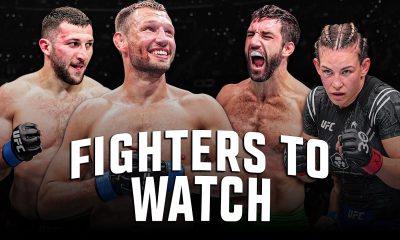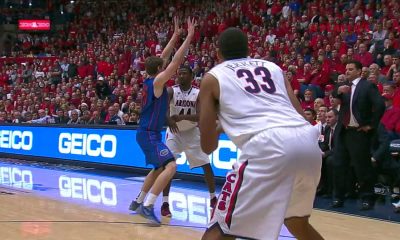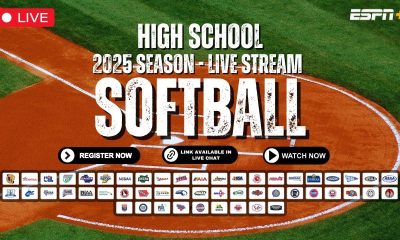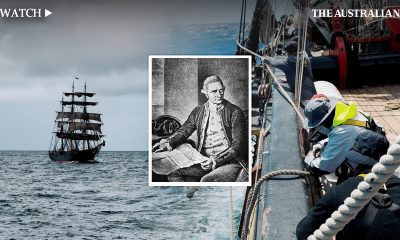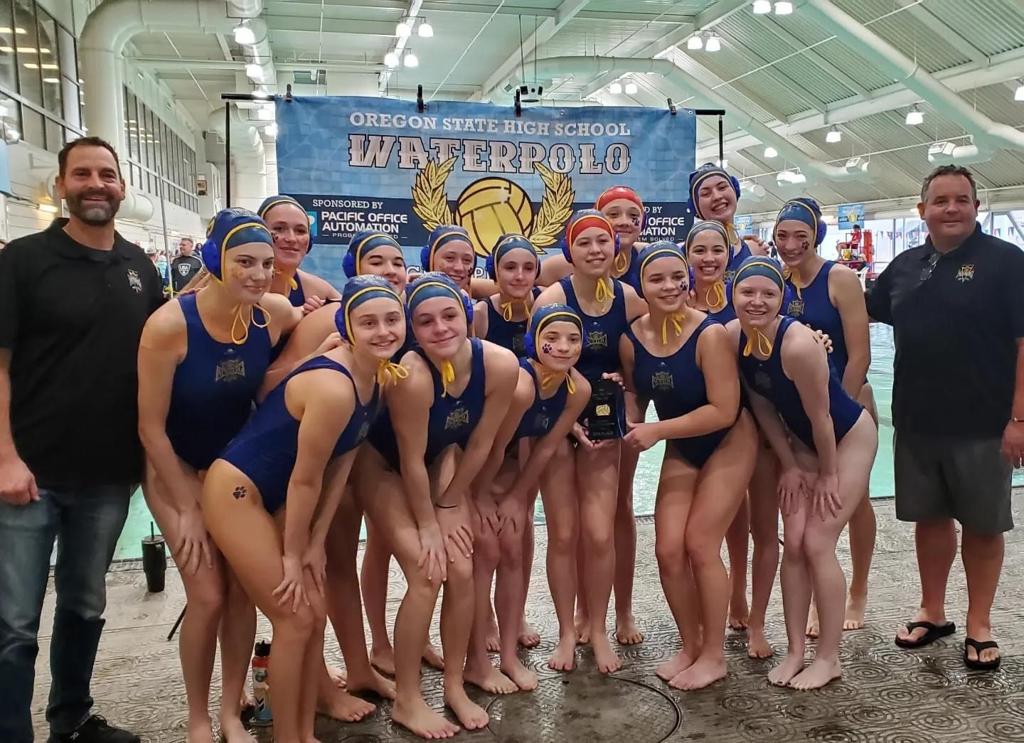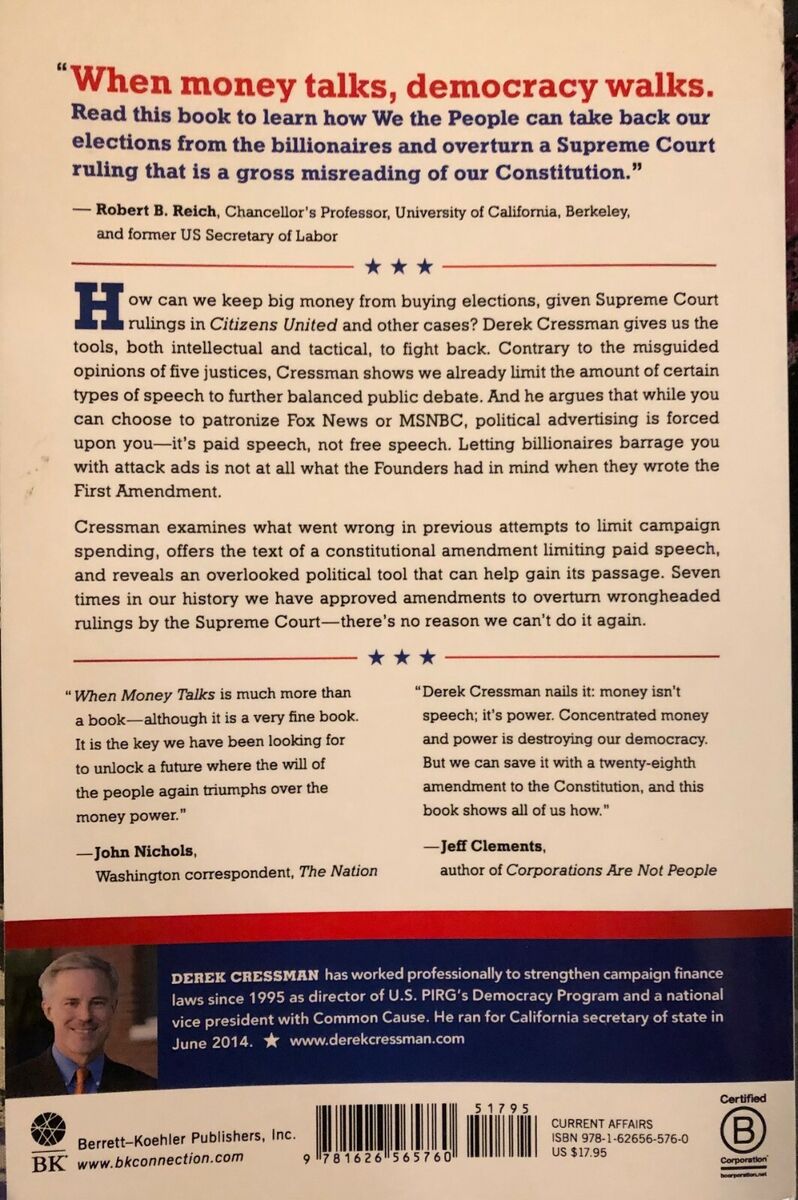NIL
Paris 2024 Olympics – a risky business?
An even more contentious measure was to allow by law, for the first time and as an experiment, the police and transport companies to use AI-powered live during the Olympics. From an insurer point of view, those technology revolutions are of course powerful risk mitigation tools. Still, given the high controversy around potential freedom‘s restrictions, […]
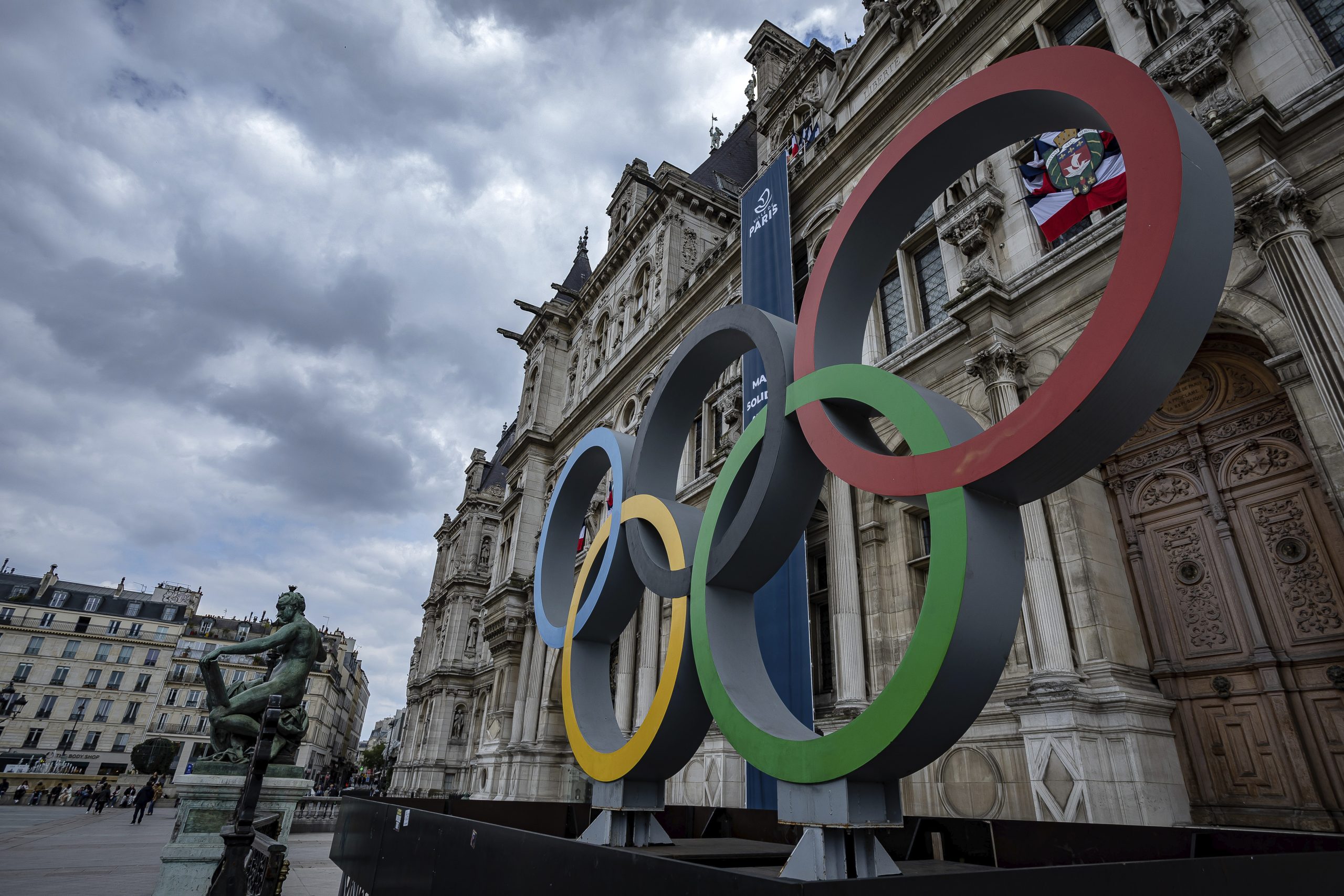
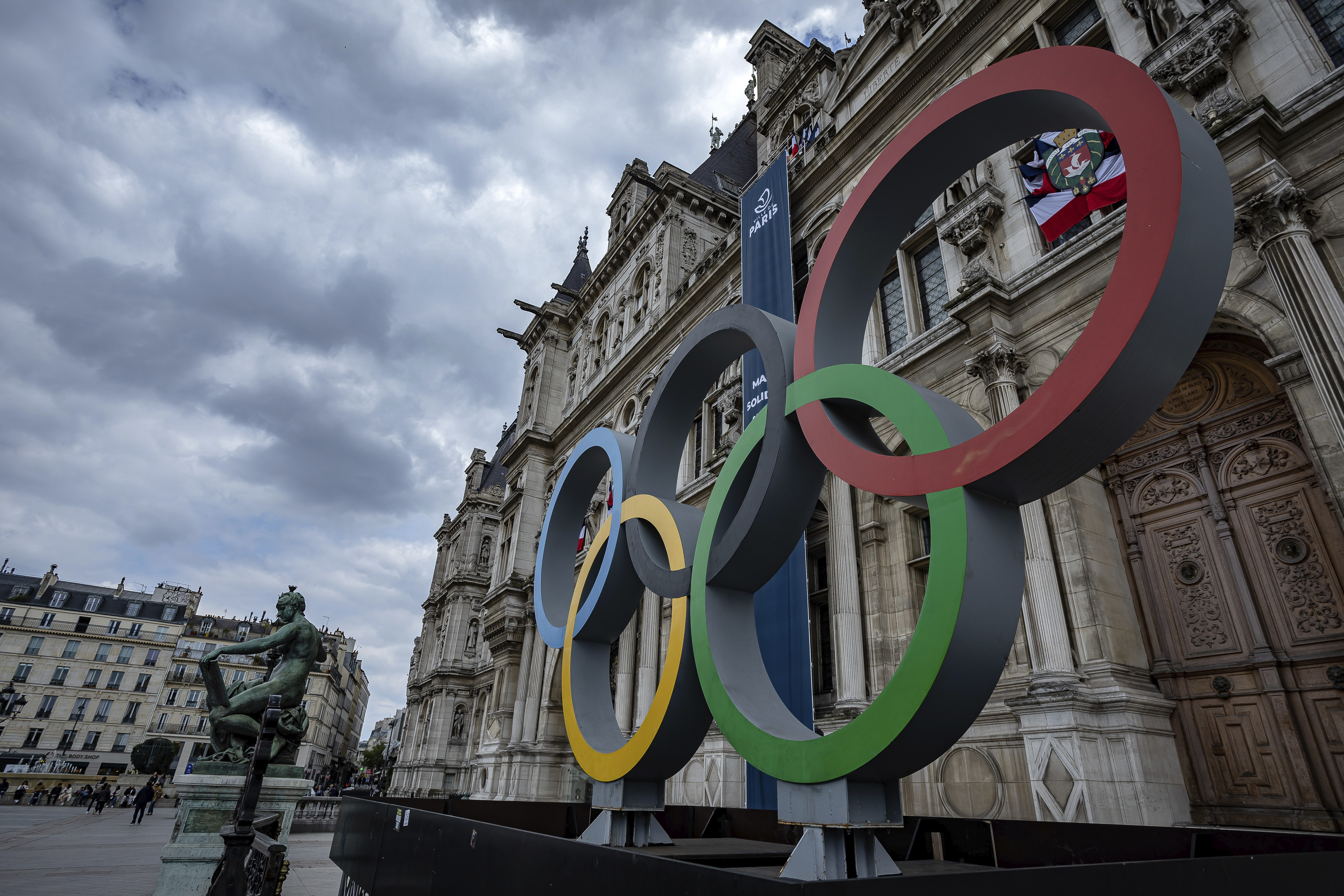
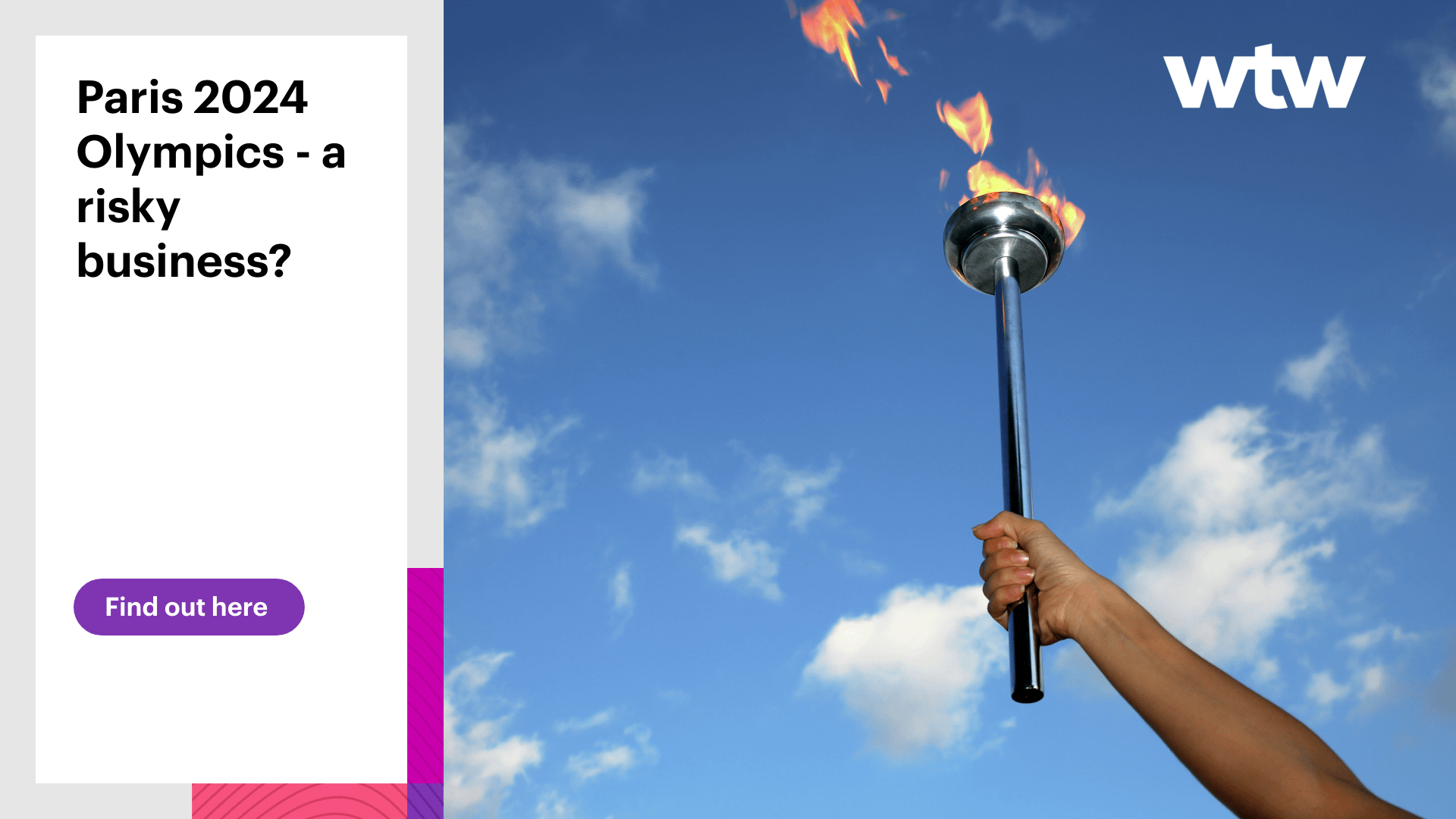
An even more contentious measure was to allow by law, for the first time and as an experiment, the police and transport companies to use AI-powered live during the Olympics. From an insurer point of view, those technology revolutions are of course powerful risk mitigation tools. Still, given the high controversy around potential freedom‘s restrictions, the generalization of such an exceptional measure, beyond the initial and limited period, is yet not validated, and will be subject to the submission of an in-depth evaluation report.
Olympic games evoke world records and superlatives: athletes were not the only ones expected to excel in Paris; but also a complex supply chain of organizers and suppliers planning for years the world’s largest sports event; one critical component, often overlooked, is insurance.
Insuring excellence in sports
The tradition of Olympic truce goes back to ancient Greece, yet there is a long record of sports getting embroiled in geopolitics. Logistical and security challenges facing the hosts include dealing with travel congestion, protests and strikes over socio-economic issues and political tensions, and terrorism threats. Many events took place in iconic, open venues difficult to secure, such as the opening ceremony which allowed 326,000 spectators along the Seine, which justified the heightened level of security, and a public-private partnership that involved 22,000 private security guards, 45,000 members of internal security forces and 18,000 military personnel. Sabotage of major railway lines the day before the opening ceremony were a stark reminder of the immense challenge of securing venues and all access routes.
From one Olympiad to another, risks evolve and insurance programmes designed years ahead of the opening ceremony need to be flexible enough to adapt to the 2024 risk landscape. For example, Tokyo 2020 (held in 2021) had no in-person spectators due to COVID-19. In contrast, Paris expected up to 15 million visitors, including 2 million from abroad. This article provides more examples of the evolving risk landscape, from environmental pressures, to crowd safety, technology and reputational risk.
Without event cancellation insurance, organizers have few incentives to cancel or postpone. But cancellation is a last resort and comprehensive contingency plans can do a lot to mitigate risks. This previous article looks at the iconic case of the Wimbledon tennis championship.
It’s easy to forget that when the final medals are awarded, athletes still need protection, individually, or through their sports federation. Despite well established insurance programmes, the growing popularity of women’s sport has underlined the need for a more gender-aware approach to protect sportswomen effectively. These Olympic Games are the first to reach gender parity, with equal numbers of male and female athletes. And yet sports equipment, clothing and training methods are often not designed specifically for women and may increase the risk of injuries – for example, there has been a disproportionate rate of Anterior cruciate ligament (ACL) injuries amongst professional women’s footballers in recent years. This reality underpins the launch of WTW’s Insurance for Women in Sport, designed specifically to protect sportswomen against loss of income due to injury or illness.
An independent study estimates Paris 2024 will generate up to €11.1 billion in net economic benefits in the Paris region and 78% of suppliers are small and medium-sized businesses. Yet luxury brands such as haute couture have been worrying about the impact on their business, anticipating their usual shoppers may stay clear of Paris during the summer, a known “crowding out” effect.
The heat is on: climate pressures on sports events
The threat of extreme heat for Olympians drove athletes from across 15 sports (including 11 Olympians) to team up with climate scientists and thermal physiologists and publish the report Rings of Fire II in June 2024. The UN predicts that 2024 will be the hottest year ever, with Europe the fastest-warming continent. Paris itself saw its average temperature rise by 3.1°C since 1924, when the last Olympics were set in France. Lord Seb Coe, four-time Olympic medalist and President of World Athletics, warns that “with global temperatures continuing to rise, climate change should increasingly be viewed as an existential threat to sport”. A separate recent review of the heat stress policies adopted by 32 international sports federations highlighted shortcomings of indices used, not necessarily fit for purpose for athletes.
Paris 2024 aimed to be the greenest Olympics ever, with a range of practical measures: a geothermal cooling system for the Olympic village, reusing data centre heat for the Olympic swimming pool, and catering 60% plant based and 80% locally sourced.
Increasingly digitized processes can increase efficiency, yet be more susceptible to cybercrime. Tokyo 2020 had registered a record of 450 million cyber attacks, 2.5 times more than the number seen at the 2012 London Olympics. Given increased geopolitical tensions, Paris 2024 was expecting 10 times more cyber attacks than Tokyo 2020, with the underlying fear of a repeat of Olympic Destroyer’s cyber attack that targeted Pyeongchang Organization Committee on February 9, 2018 during the opening ceremony of the 2018 Winter Olympics, causing a shutdown of all systems during 12h and triggering an impressive remediation plan to almost seamlessly restore operations overnight.
The geopolitical context on the eve of Paris 2024 (continuing conflict in Ukraine, tensions with Russia, conflict in the Middle East) made the Olympic & Paralympic Games in France an ideal playground for activism and terrorist attacks, dramatically raising security concerns to an unprecedented level.
Companies sponsoring the games can expect iconic visibility, as no other event can deliver the same drama, audiences and uplifting storylines. Sports sponsorship remains an attractive marketing option but with a changing line-up of stakeholders, some of them more unconventional. This is not without risks, and sports stars can also make the news for all the wrong reasons, highlighting the reputational risks of sponsorship on corporate brands.
Crowd safety: socio-geopolitical and public health pressures
The range of insurance needs showcases the diversity of solutions, from the obvious (protecting athletes with personal accident and illness insurance, protecting organisers with Directors & Officers cover, or protecting venues and operations with public liability insurance) to the more esoteric: for the 2022 FIFA world cup, Argentinian footballer Messi had the most expensive body part insurance in sports, with a 0m policy on his left foot.
With 32 sports and 329 events across 35 venues, Paris 2024 Olympics would have required a complex insurance programme, and a clear way to share responsibilities. With no “one size fits all” solution, a bespoke design of interlinked insurance covers would have been necessary, supported by a wide range of expertise, combining local knowledge, links to a large panel of insurers and industry specialization. With so many eyes on these events, there is no room for failure, and a proven track record is essential.
These aspirations have clashed with the harsh reality of athletes prioritizing their performance over their carbon footprint. A month before the start, a few Olympic delegations announced they would pay for their own air-con units.
Related to Zika and also spread by mosquitos, dengue was closely monitored by French entomologists to reduce the risk. Although numbers were still low, cases so far in 2024 were already 12 times higher than in 2023. Global travel, urbanization, hotter and wetter weather driven by climate change, all contribute to changing the geographic spread of mosquitos, a trend monitored closely by the European Centre for Disease Prevention and Control. This will impact travel insurance and would also be an unwelcome souvenir as tourists go back to their countries.
The double-edged sword of technology
Cyber protection is a very good example of how the insurance market has evolved over time to constantly adjust coverages and wordings to hedge underlying risks that any event organisers face, whether they are the flagship organizer or a smaller provider in the complex supply chains underpinning mega events, whether the source of risk is insider threats or a global IT outage such as the recent Crowstrike incident.
The controversy around the QR code digital pass is a good example of how technology and crowd safety overlap. The system implemented for access to a defined security perimeter in Paris for a short duration around the opening ceremony led residents to contest (unsuccessfully) the exceptional measure in front of the highest court in France. Considering the exceptional circumstances and heightened security risks, the digital pass process was confirmed, despite the curtailed freedom of movement.
Olympic Games organizers are often determined to break new records. Paris 2024 challenged previous traditions of holding the opening ceremony in one stadium, staging it instead as a moving spectacle along 6km of the Seine on 26th July. The “Marathon pour tous” was be the first ever event in Olympic history open to the general public, with 40,048 runners. Both events brought unique security challenges and emphasised how insurers cannot simply rely on previous Olympics to assess and price risks. Insurance premiums are typically calculated by combining past loss experience, current risk profile and risk outlook. For such large and unusual events, history is a poor guide, and a specialized approach to risk will no doubt have been needed to price and place these unusual risks.
Organizers of large sports events face a complex web of risks, which cannot be considered in isolation: the Copa America Final in Miami in July 2024 combined heat stress, crowd control challenges, disciplinary action over an alleged racist chant, and athlete injury. Beyond the wonderful show of sports, risk managers can look at those events as a great demonstration of the adaptability of insurance to the most ambitious and challenging circumstances. In light of those complexities, it won’t be long before organisers and insurers discuss the finer details of Los Angeles 2028. With 2030 Winter Games in view, France will not have to wait long before going back to work and leveraging the Paris 2024 recent experience.
Sustainability and reputation risk: are large sports events good for business?
A recent report by the Council on Foreign Relations contrasted the skyrocketing costs of hosting the Olympics with unclear economic benefits. Paris 2024 may show whether the bidding process reforms have made hosting a better deal. The Olympic Agenda 2020 aims to deliver Games that are more responsible, sustainable and inclusive. For example, the construction-related carbon footprint for Paris 2024 should be lower, with 95% of the venues already built or temporary. Further innovative solutions for energy, food, transport and digital services will be there to stay, long after the Games.
The 2003 heatwave resulted in excess mortality estimated at 15,000 people in France alone, but a heatwave would not have to reach this intensity to affect athletes and spectators alike. After a rain-soaked opening ceremony, Paris 2024 had to contend with above normal temperatures, yet organisers had anticipated this well: with free water access points everywhere and personal bottles allowed on the venues, this was a win-win from an ESG and liability-hedging point of view. Extreme weather risks to spectators are increasingly a concern for sports and concert venues, with organizers and fans often unprepared for the rising risks. The Euro 2024 match between Germany and Denmark was recently interrupted after some intense lightning (often a precursor to a hail storm). Despite the inconvenience to spectators, local authorities were acutely aware that Germany regularly sees severe convective storms with hail stones of 10cm diameter and were taking no chances about the safety of players and fans. This also happened for a beach volleyball match in Paris 2024. Even with public liability insurance in place, organizers have to take all necessary measures to protect individuals on their premises. Over the last year, spectators have been injured, or even killed, at sports or concert events due to heatwaves or severe convective storms. In 2023, smoke from wildfires led to concerts and sporting events to be cancelled in the U.S. and Canada. Paris 2024 football events were held in Nice, in the south of France. Over the last 30 years, Nice has seen 328 forest fires. Although risk to the stadium itself is low, fires in surrounding areas could have created disruption to spectator traffic and smoke pollution.
With COVID-19 almost forgotten and spectators allowed back, Paris 2024 could have ended up as a super-spreader event. There is a precedent for Olympics being identified as a multiplier for viral epidemics: the 2016 Brazil Olympics were almost postponed because of concerns around Zika.
Conclusion
In summer 2024, Europe hosted a cluster of sports events: Euro 2024, Le Tour de France, but all eyes were on the Olympics and Paralympics. With sudden concentrations of risk, large sports events push risk management and insurance to their limits and require specialized experience and preparedness for the unprecedented. This article reflects on what is involved, behind the scenes, to insure excellence in sport, when this ideal is confronted to the harsh reality of multiple pressures: climate, socio-political, technology and ESG.
NIL
Report: President Donald Trump considering executive order on NIL after Nick Saban meeting
After meeting with former Alabama coach Nick Saban this week, President Donald Trump is considering an executive order “that could increase scrutiny” of NIL payments and the future of college athletics, the Wall Street Journal reported. Saban introduced Trump ahead of Thursday’s commencement address in Tuscaloosa. During their meeting, which took place Thursday night, Saban […]
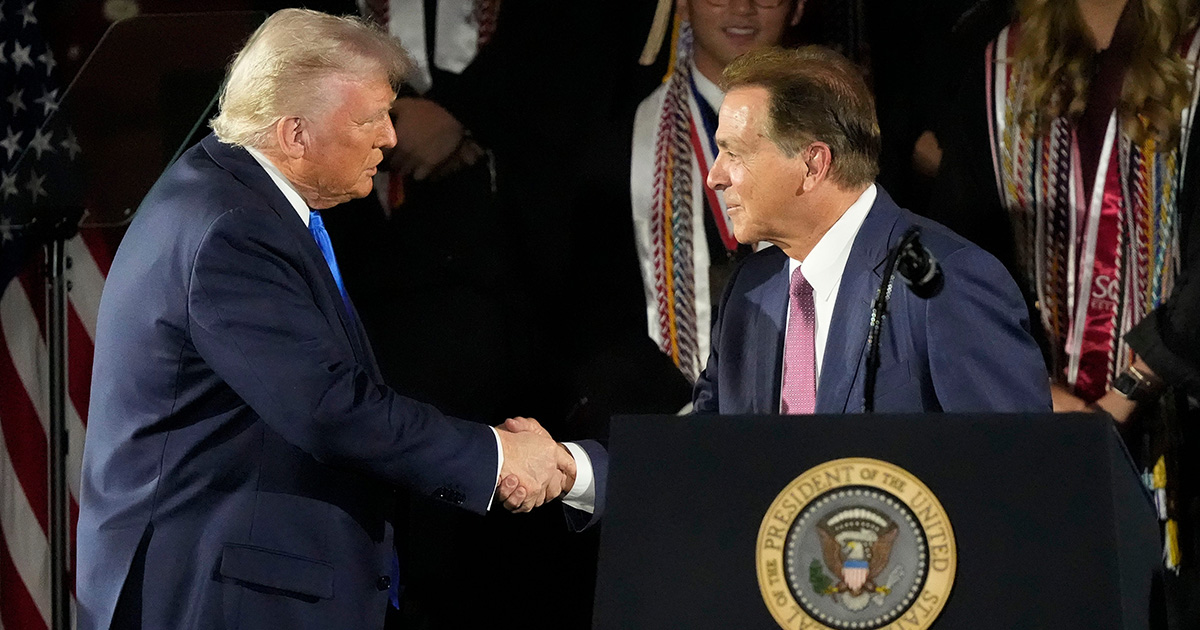
After meeting with former Alabama coach Nick Saban this week, President Donald Trump is considering an executive order “that could increase scrutiny” of NIL payments and the future of college athletics, the Wall Street Journal reported. Saban introduced Trump ahead of Thursday’s commencement address in Tuscaloosa.
During their meeting, which took place Thursday night, Saban expressed concern about the amount of NIL dollars added to the college sports landscape, according to the Wall Street Journal. The legendary coach said he thought it was damaging college athletics. Trump agreed and said he would consider drafting an order, telling aides to start studying what that could look like.
Saban’s point was more about “reforming” NIL, the Wall Street Journal said, and creating more of an even playing field. That echoes similar comments he made publicly about the need for competitive balance as the space continues to shift.
NCAA leadership has taken multiple trips to Capitol Hill for discussions about NIL and college sports. Last month, leaders from across collegiate athletics took a trip to Washington, D.C. for College Sports Day. Saban has also spoken in front of Congress about regulation, notably doing so in a roundtable hosted by Sen. Ted Cruz (R-TX) last year.
NCAA president Charlie Baker and SEC commissioner Greg Sankey also spoke multiple times about the need for national legislation to help regulate NIL. Saban also did so on ESPN’s College GameDay this past football season, calling for stability with both NIL and the transfer portal.
“I personally think we probably need some national legislation to make the rules the same in all the states because right now, different rules govern each state in terms of what you can and can’t do with players,” Saban said in December. “I think it’s up to the NCAA to sort of [say], we’ve gone overboard a little bit to give these players all these opportunities. You have to have contracts.
“If you have a contract, you have a responsibility, and you have to fulfill the contract. … It’d be for coaches and players, and the players should make money. I’m not against the players making money. They should make money. But they should have a contract and a responsibility to fulfill, just like a coach does, and there’s some penalty if you leave a team and you have a contract. Just like most coaches have buyouts, and they pay them if they leave. … I think the NCAA is afraid of lawsuits, so they need some legal protection from litigation for this to get fixed.”
NCAA also waiting on House settlement decision
News of the executive order consideration comes as the college sports world waits for a decision on the landmark House v. NCAA settlement. The agreement would transform the landscape and usher in the revenue-sharing era if fully approved. In addition, athletes would have to report any deals worth more than $600.
Judge Claudia Wilken issued an order last week delaying final approval of the settlement, telling attorneys to change verbiage regarding roster limits in the agreement. She gave them two weeks to do so, and that deadline is coming up May 7.
During the April 7 hearing in the U.S. District Court for the Northern District of California, Wilken told attorneys for both the plaintiffs and NCAA to address her concerns about roster limits within one week. Lawyers then filed a supplemental brief, but did not change the verbiage around roster limits after Wilken suggested phasing them in or grandfathering athletes currently on rosters.
In her order, Wilken said she would deny settlement approval if the roster limit changes are not made. She added that while the settlement received preliminary approval, that did not mean final approval was a certainty.
NIL
Former Arizona State guard Adam Miller transferring to Gonzaga
SPOKANE, Wash. (AP) — Former Arizona State forward Adam Miller is transferring to Gonzaga. The university announced the move Friday,… SPOKANE, Wash. (AP) — Former Arizona State forward Adam Miller is transferring to Gonzaga. The university announced the move Friday, saying Miller has signed a financial aid agreement. Gonzaga will be the fourth school for […]

SPOKANE, Wash. (AP) — Former Arizona State forward Adam Miller is transferring to Gonzaga. The university announced the move Friday,…
SPOKANE, Wash. (AP) — Former Arizona State forward Adam Miller is transferring to Gonzaga.
The university announced the move Friday, saying Miller has signed a financial aid agreement.
Gonzaga will be the fourth school for Miller, an Illinois native who has scored 1,206 points in 117 games for Arizona State, LSU and Illinois. He has one year of eligibility left.
Miller started all 30 games for Arizona State last season, averaging 9.8 points and shooting 42.9% from 3-point range.
___
AP college basketball: https://apnews.com/hub/ap-top-25-college-basketball-poll and https://apnews.com/hub/college-basketball
Copyright
© 2025 The Associated Press. All rights reserved. This material may not be published, broadcast, written or redistributed.
NIL
Trump considers executive order regarding payments to college athletes
Trump’s review of the matter comes in the wake of a conversation he had with former Alabama football coach Nick Saban earlier this week. Trump says he will revoke tax-exempt status for Harvard University The Trump administration has threatened to freeze $2 billion in federal funding after not agreeing to a list of demands from […]
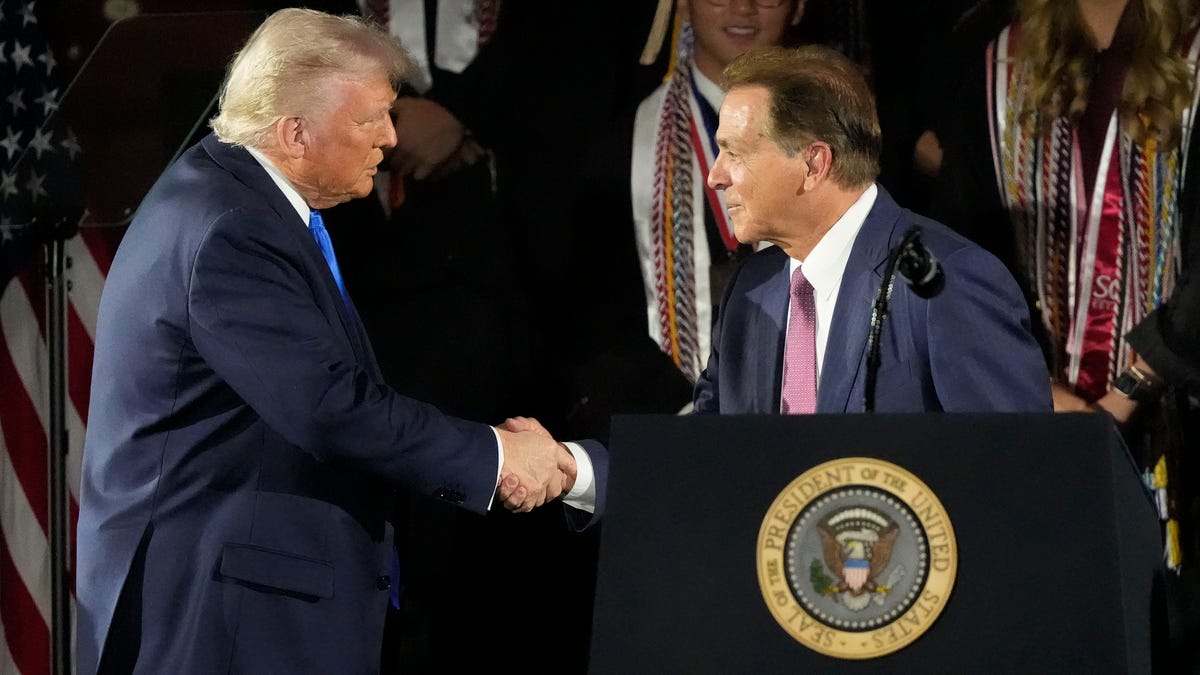
Trump’s review of the matter comes in the wake of a conversation he had with former Alabama football coach Nick Saban earlier this week.
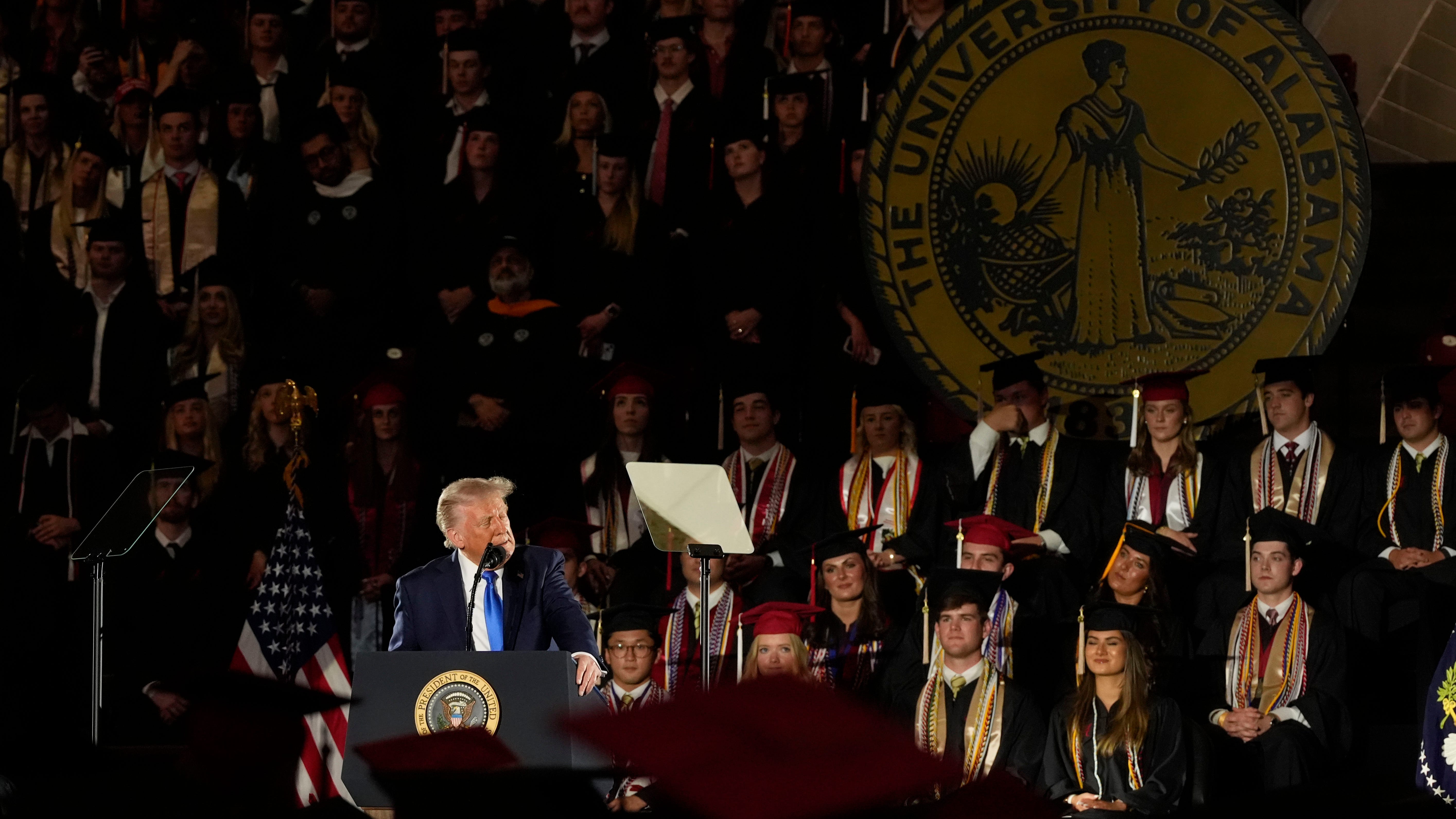
Trump says he will revoke tax-exempt status for Harvard University
The Trump administration has threatened to freeze $2 billion in federal funding after not agreeing to a list of demands from the administration.
- Sen. Richard Blumenthal, amid talks with Sen. Ted Cruz for bill, says Trump “has no power to attempt to rule by decree — especially to give handouts to the NCAA.”
WASHINGTON ― President Donald Trump is giving “serious consideration” to signing an executive order that would address payments to college athletes, a person familiar with the matter confirmed to USA TODAY on May 2.
The person requested anonymity because they were not authorized to speak publicly about the matter.
Trump’s review of the matter comes in the wake of a conversation he had with former University of Alabama football coach Nick Saban on May 1, when Trump was in Tuscaloosa to speak at the university’s commencement ceremonies.
The order could potentially add oversight to name, image and likeness, or NIL, that has exploded across college athletics with few regulations, although how the order would address NIL was not immediately clear.
The Wall Street Journal first reported Trump’s consideration of the action, which would add to the more than 140 executive orders Trump has signed in his first 102 days, spanning a range of issues.
Saban has been critical of the current state of college sports, including at a roundtable event in Washington that was hosted by Sen. Ted Cruz, R-Texas, in March 2024 as part of Cruz’s ongoing efforts to craft college-sports legislation that can pass Congress.
Saban said at the time that athletes’ “personal development” was being hindered by the combination of virtually unregulated opportunities for athletes to make money from NIL and their ability to transfer multiple times in their college careers. He also called for “rules that create some kind of competitive balance, which right now we don’t have in college athletics. It’s whoever wants to pay the most money, raise the most money, buy the most players is going to have the best opportunity to win. I don’t think that’s the spirit of college athletics.”
U.S. Sen. Tommy Tuberville, R-Alabama, said he had a “great conversation” with Trump on Air Force One about “the importance of establishing national standards for NIL” during the president’s trip to his state.
“College football is the heart and soul of America ‒ but it’s in danger if we don’t level the playing field,” said Tuberville, a former football coach at Auburn University and other schools.
Trump’s potential entry into this area comes as lawyers for the plaintiffs, the NCAA and the Power Five conferences have been trying to revise one aspect of the proposed settlement of three athlete-compensation antitrust cases that U.S. District Judge Claudia Wilken has said she is otherwise prepared to give final approval.
Under the arrangement, $2.8 billion in damages would be paid to current and former athletes — and their lawyers — over 10 years, and Division I schools would be able to start paying athletes directly for use of their NIL, subject to a per-school cap that would increase over time and be based on a percentage of certain athletics revenues. Athletes would continue to be allowed to have NIL deals with non-school entities, but any deals worth $600 or more would be subject to greater scrutiny than they are now.
While the proposed settlement would solve some problems for the NCAA and its conferences and schools, they have continued to lobby Congress for legislation that would, among other things, enshrine in federal law athletes’ NIL rights, preempt dozens of state laws that have been passed in connection with athletes’ NIL rights and give the NCAA a measure of legal protection against antitrust actions. This is where Trump could step in.
Trump instructed White House aides to begin studying what an order would look like, according to The Wall Street Journal.
Sen. Richard Blumenthal, D-Conn., on the night of May 2, said in a statement to USA TODAY of Trump’s potential involvement: “College sports reform can only happen through Congressional legislation based on bipartisan negotiations that put college athletes first. The President is welcome to support Senate negotiations, but he has no power to attempt to rule by decree — especially to give handouts to the NCAA over the blood, sweat, and tears of players.”
One of the lead lawyers for the plaintiffs in the ongoing antitrust case, Steve Berman, in a statement to USA TODAY, blasted the prospect of Trump’s involvement in any way that would limit athletes.
“The president says he is the greatest business person ever,” Berman wrote. “Why would he do anything to limit the business deals students are negotiating for their NIL. He has been a benefit of the free market why not these young athletes[.]
“As for Saban what a hypocrite. He has been an opponent of NIL from the start while he made tens of millions off the backs of these athletes. Even [J]ustice Kavanaugh, one of (Trump’s) appointed judges, stated in his [A]lston decision that this was wrong.
“Trump should talk to coach (Jim) Harbaugh who is a fan of the burgeoning NIL market and not a fan of the system of coach exploitation that Saban benefited from[.]”
Berman was referencing Justice Brett Kavanaugh’s concurring opinion to the Supreme Court’s unanimous ruling in the Alston vs. NCAA antitrust case in which the high court ended the association’s limits on education-related benefits athletes can receive for playing college sports. Kavanaugh heavily criticized the NCAA’s limits on athletes’ compensation, writing, among other things: “The NCAA’s business model would be flatly illegal in almost any other industry in America.”
Harbaugh, now with the NFL’s Los Angeles Chargers, repeatedly advocated for greater compensation for college athletes during his nine seasons as the University of Michigan’s football coach.
NIL
Peoria native finds new NCAA basketball home out west
Adam Miller has found his new and final college basketball home. The Peoria native announced on social media he’ll use his final year of eligibility at Gonzaga. Miller, a 6-foot-3 guard, played one season at Illinois, another at LSU and the last two seasons at Arizona State. “Zags,” he captioned the post, using the heart […]
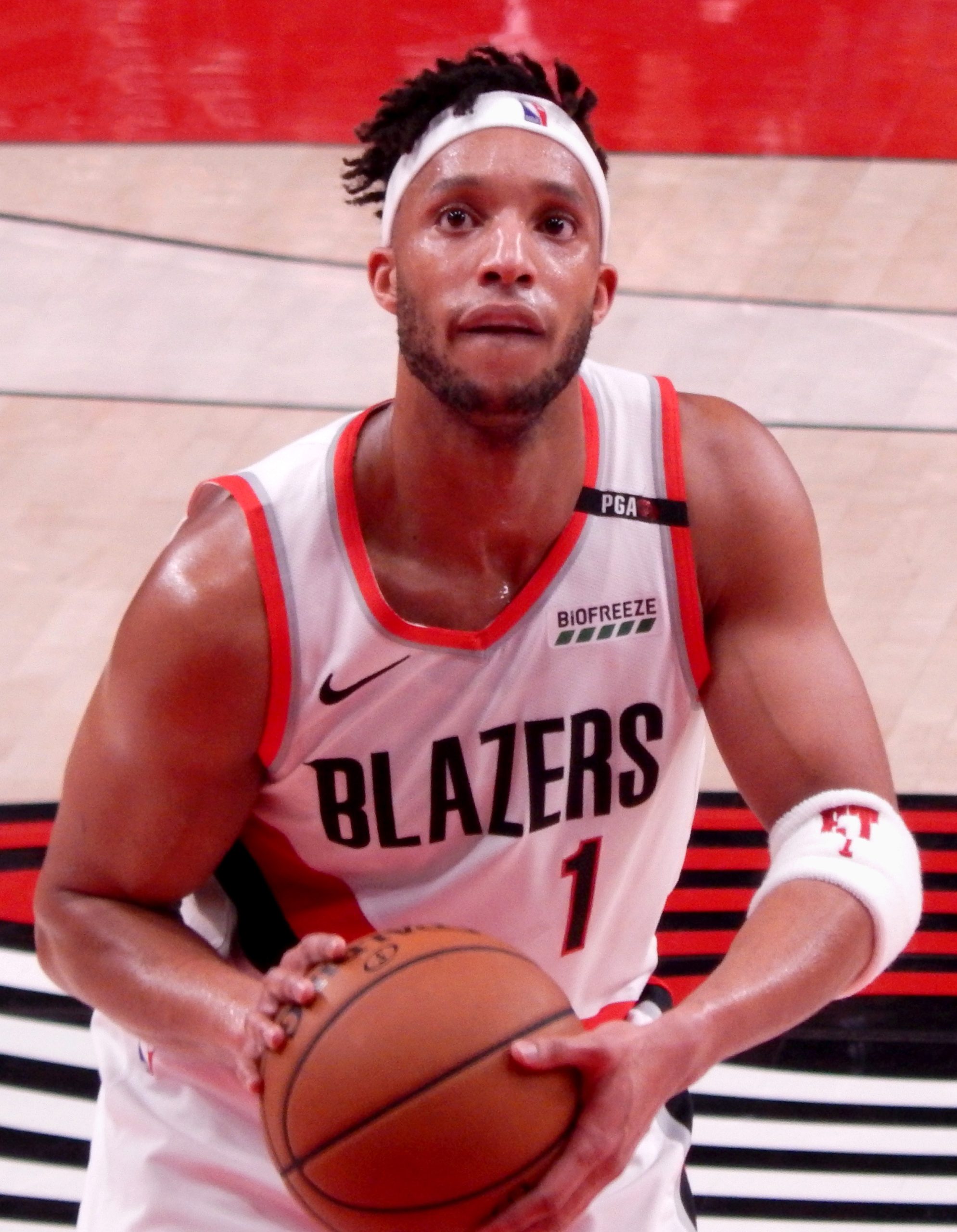


Adam Miller has found his new and final college basketball home.
The Peoria native announced on social media he’ll use his final year of eligibility at Gonzaga. Miller, a 6-foot-3 guard, played one season at Illinois, another at LSU and the last two seasons at Arizona State.
“Zags,” he captioned the post, using the heart hands emoji. “One more run”
The former Manual basketball player has one season of eligibility remaining because his freshman season with the Fighting Illini was affected by the COVID pandemic.
During this past season for ASU, Miller, 23, averaged 9.8 points, 2.3 rebounds and 1.9 assists for the Sun Devils, who finished 13-20 and lost in the opening round of the inaugural College Basketball Crown tournament. He did shoot 42.9% (57-for-133) from behind the arc.
This was Miller’s fourth time entering his name into the NCAA transfer portal. He removed his named and returned to LSU in 2022.
NIL
Alabama senator meets with Trump and Saban
How coaches salaries and the NIL bill affects college football Dan Wolken breaks down the annual college football coaches compensation package to discuss salaries and how the NIL bill affects them. Sports Pulse As the issue of name, image, and likeness makes its way to a possible conclusion and regulation in the world of college […]
How coaches salaries and the NIL bill affects college football
Dan Wolken breaks down the annual college football coaches compensation package to discuss salaries and how the NIL bill affects them.
Sports Pulse
As the issue of name, image, and likeness makes its way to a possible conclusion and regulation in the world of college athletes, the United States government is getting involved as the courts continue to sort out the issue.
Alabama Republican Senator Tommy Tuberville and former Alabama coach Nick Saban met with President Donald Trump to discuss possible NIL reform measures before Trump was set to deliver the commencement address at the University of Alabama.
Before that meeting, Tuberville spent his time in a radio interview 100.9’s “The Game with Ryan Fowler on Wednesday playing the blame game, aimed explicitly at Democrats.
“I think we can get it on the floor, the problem is getting it past a Democrat group that really wants nothing to do with making this country better. They don’t care about college sports or education, they worry about the power that they control in this country. It’s a hard way to go, but if anybody can get it done, it’s President Trump, and hopefully we can have some discussion to get on the right track toward helping the NIL and college sports,” Tuberville said.
Tuberville also had an issue with the transfer portal, which has run rampant in the past few years, where athletes can essentially switch schools every year without penalty.
“Everybody would be on the same level. We’ve got to come up with some rules for the transfer portal, possibly a contract for players,” Tuberville said. “We do not want to turn into minor league sports. I talked to (Auburn men’s basketball coach) Bruce Pearl a few weeks ago, he says it’s a disaster, absolute disaster in basketball, and I’m sure it goes over into football and some of the other sports.”
NIL
Boston College Adds Another Talent from Transfer Portal
Bill O’Brien and his staff have been extremely active in the transfer portal this offseason, landing commitments from several talented players and solidifying Chestnut Hill as a premier destination. According to Matt Zenitz of 247Sports, the Eagles landed the 15th transfer portal prospect so far of this offseason as former Barton College edge rusher E’Lla […]
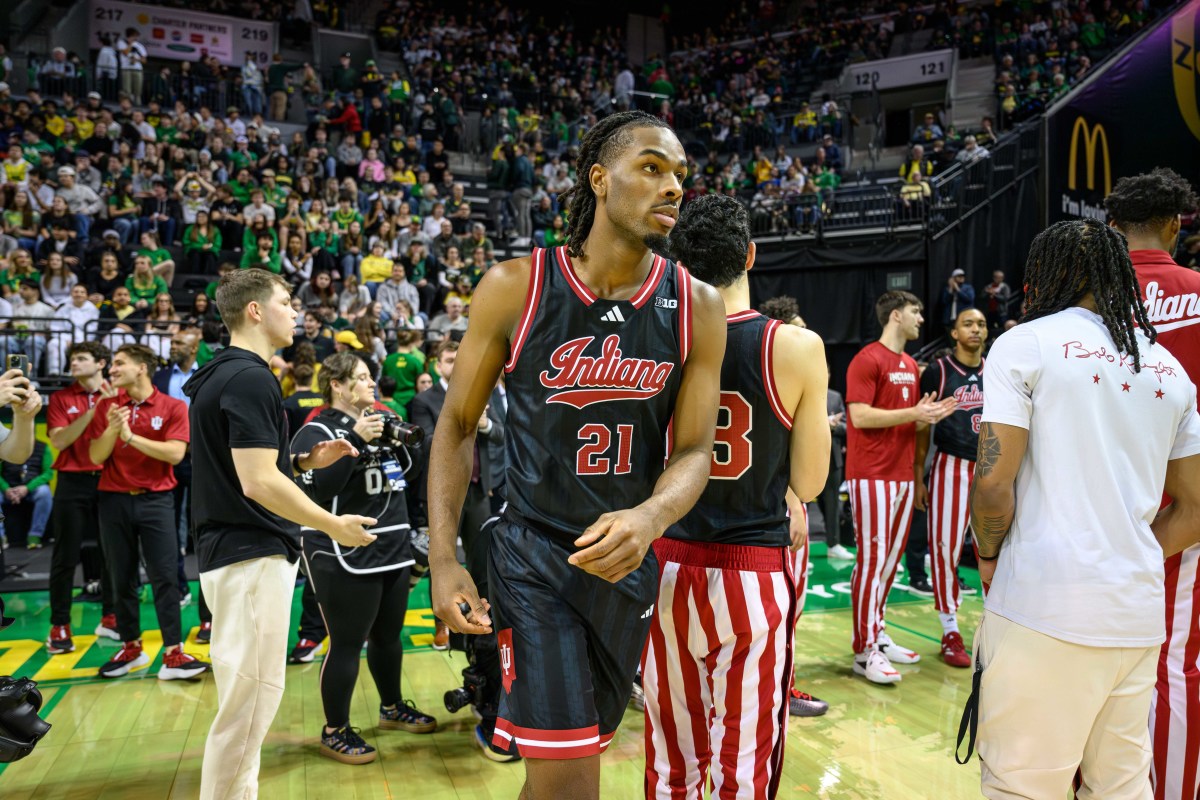
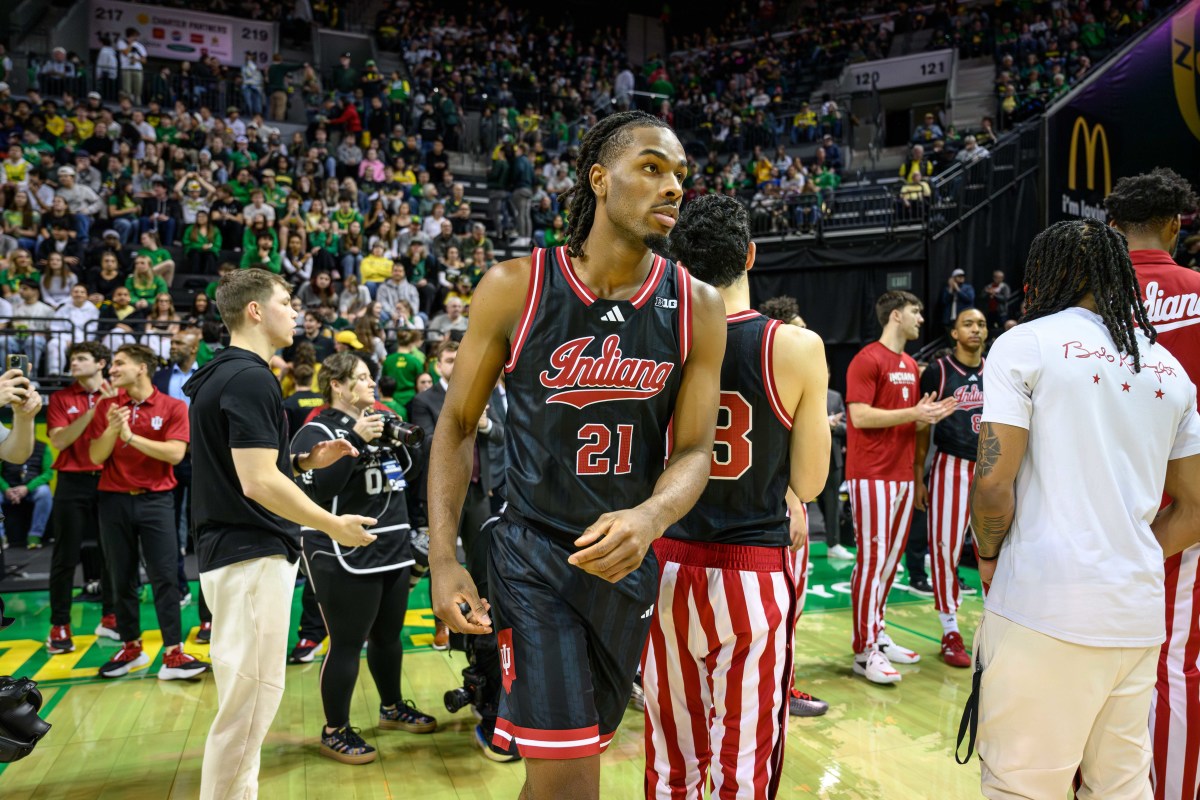

Bill O’Brien and his staff have been extremely active in the transfer portal this offseason, landing commitments from several talented players and solidifying Chestnut Hill as a premier destination.
According to Matt Zenitz of 247Sports, the Eagles landed the 15th transfer portal prospect so far of this offseason as former Barton College edge rusher E’Lla Boykin announced his decision to commit to Boston College on Friday.
Popular Barton linebacker/EDGE transfer E’Lla Boykin has committed to Boston College, his agency @QCSports tells @chris_hummer and me.
Had ranked as the eighth-best uncommitted front seven player in the transfer portal. The 6-3, 230-pounder had 55 tackles last year at Barton.… pic.twitter.com/voil4PZG05
— Matt Zenitz (@mzenitz) May 2, 2025
One of the top remaining players at his position in the portal, Boykin is rated as a 3-Star prospect. As a freshman in 2024 he finished with 55 tackles, 3.5 TFL’s, a sack and an interception and was named the South Atlantic Conference freshman of the year.
After the departure of Donovan Ezeiruaku to the NFL this offseason, Boston College is in need of another top pass rusher. While Boykin may not be at that level quite yet, he has shown flashes of incredibly impressive potential.
He stands at 6-foot-3, 230 lbs., giving him a build similar to that of Ezeiruaku, and is extremely fluid as a pass rusher. He not only possesses excellent strength, but is creative in how he utilizes different moves to get after the quarterback.
While it may take a bit of time for a player like Boykin to catch on, making a major leap in competition like he is, he looks to have a very high ceiling and defensive line coach Jordan Thomas has shown the ability to develop high level talents.
Transfer Portal Arrivals
Chris Marable Jr., defensive lineman: transferred from Wake Forest
Will Straka, linebacker; transferred from Wisconsin-Platteville (DIII)
Favor Bate, EDGE; transferred from Merrimack
Michael Bumpus Jr., defensive lineman; transferred from Brown
Amir Johnson, offensive lineman; transferred from Merrimack
Ty Lockwood, tight end, transferred from Alabama
Dylan Lonergan, quarterback; transferred from Alabama
Tommy Matheson, offensive lineman, transferred from Princeton
Zeke Moore, tight end; transferred from FAU
Chuck Nnaeto, defensive lineman; transferred from Elon
Onye Nwosisi, defensive lineman; transferred from Valparaiso
Vaughn Pemberton, running back; transferred from Ball State
VJ Wilkins, wide receiver; transferred from Campbell
Makai Byerson, defensive lineman; transferred from West Virginia
E’Lla Boykin, edge rusher; transferred from Barton College (DII)
-

 College Sports2 weeks ago
College Sports2 weeks agoFormer South Carolina center Nick Pringle commits to Arkansas basketball, John Calipari
-
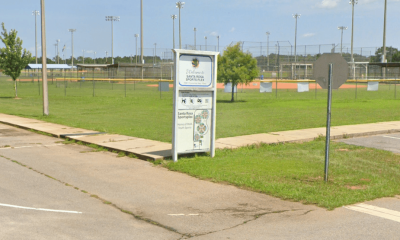
 Rec Sports1 week ago
Rec Sports1 week agoDeputies investigating incident that caused panic at Pace youth sports complex
-
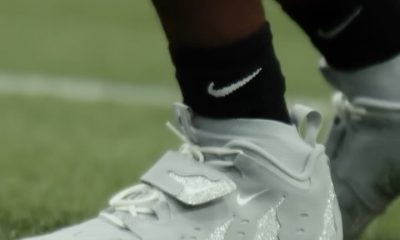
 Fashion1 week ago
Fashion1 week agoThis is poetry in motion.
-
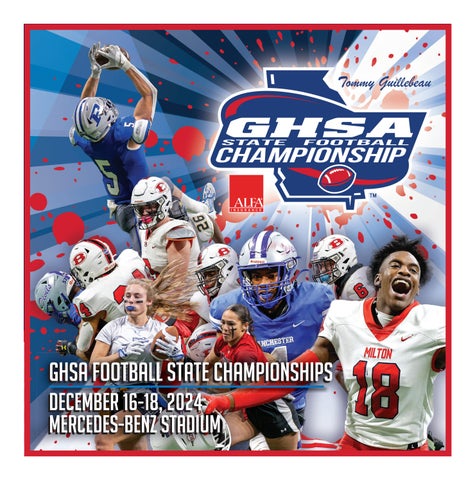
 High School Sports1 week ago
High School Sports1 week agoAppling County football to forfeit all 10 wins from 2024
-
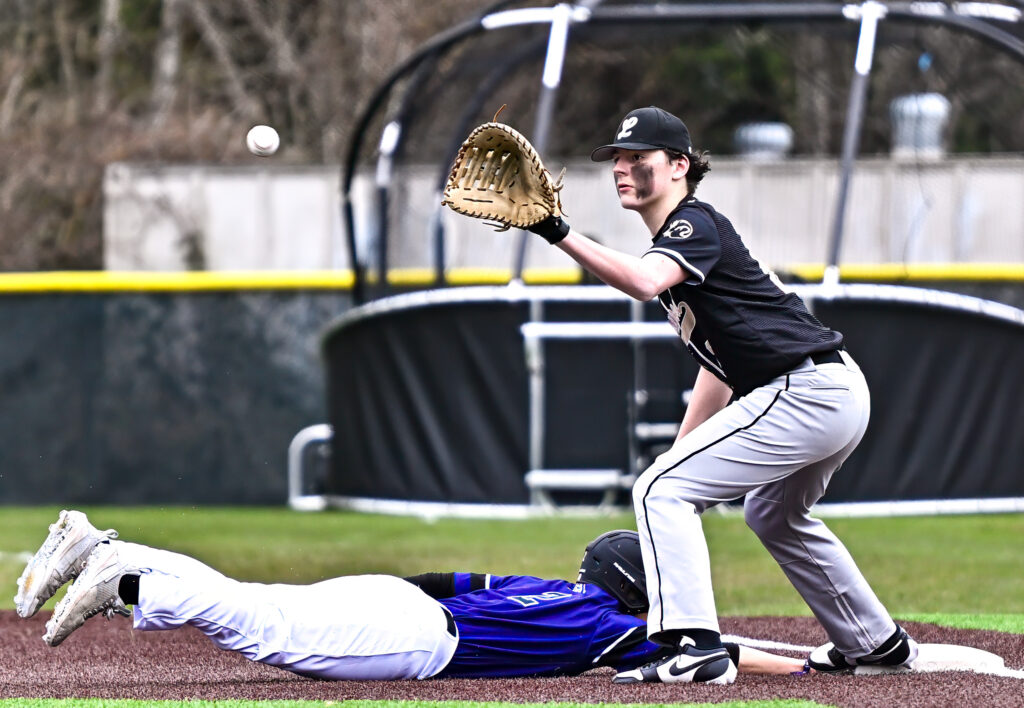
 Sports2 weeks ago
Sports2 weeks agoSports Roundup
-
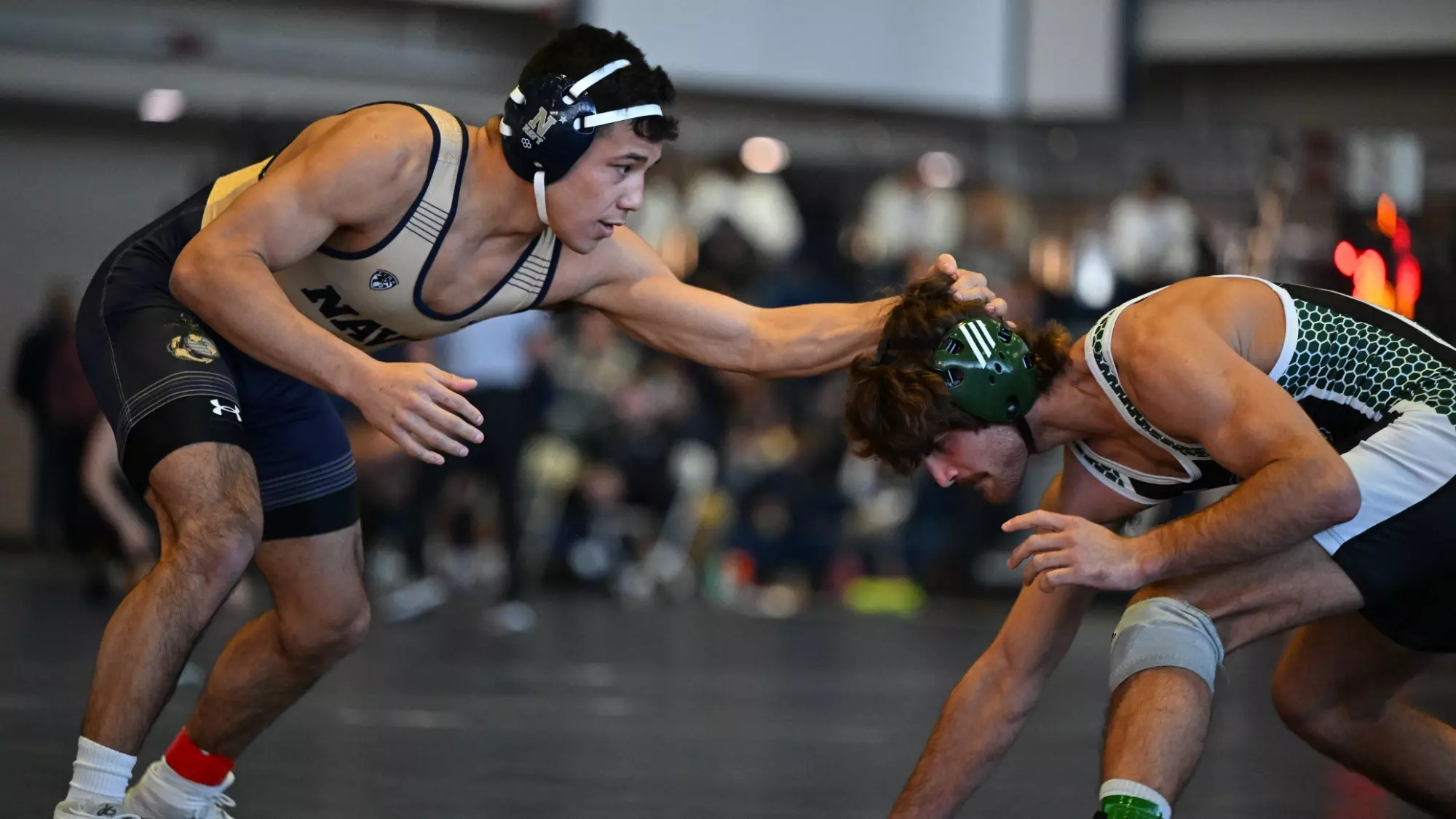
 College Sports1 week ago
College Sports1 week agoLehigh wrestlers prepare for wrestling U.S. Open
-
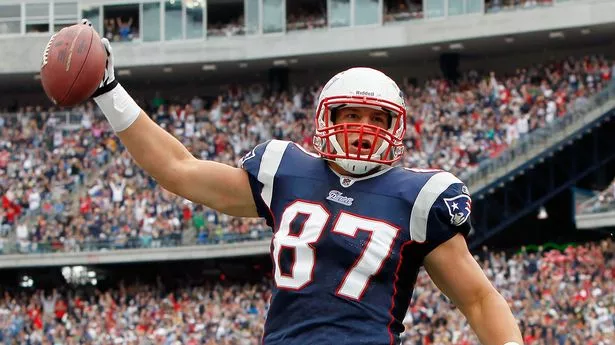
 NIL2 weeks ago
NIL2 weeks agoPatriots Legend Rob Gronkowski Makes Surprising Career Move
-
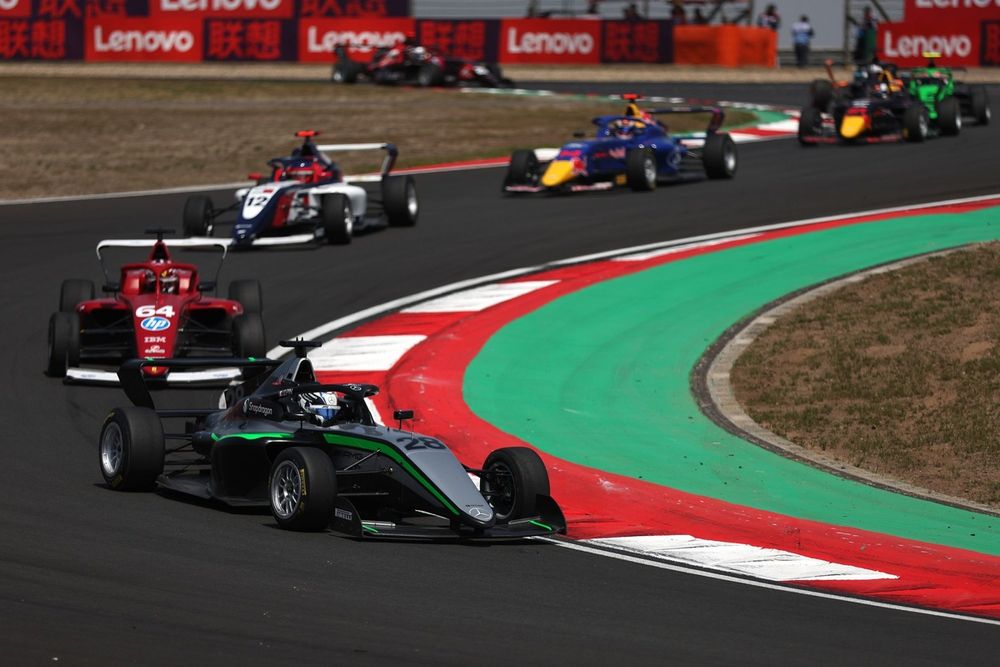
 Fashion2 weeks ago
Fashion2 weeks agoWatch Saudi Arabian GP free live stream
-

 NIL1 week ago
NIL1 week agoSave Like a Pro: NIL money isn’t free cash—taxes take a bite! Set aside part of …
-

 Sports1 week ago
Sports1 week agoHow to watch Yahoo Sports' NFL Draft Live show




